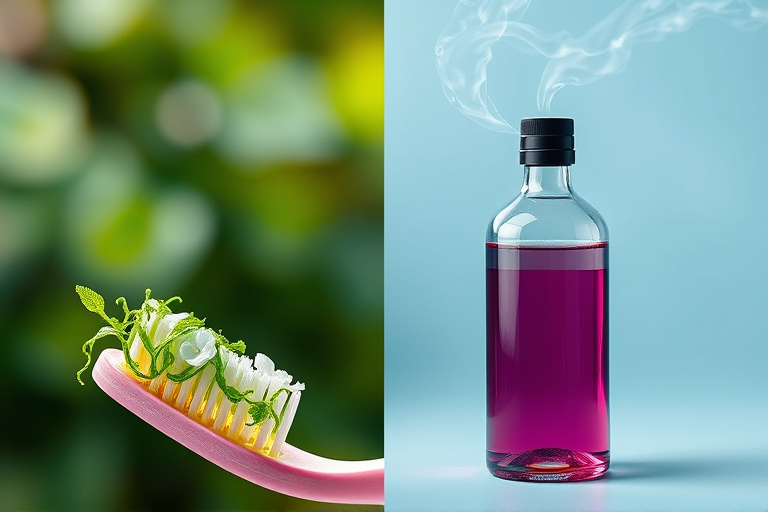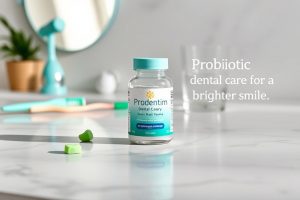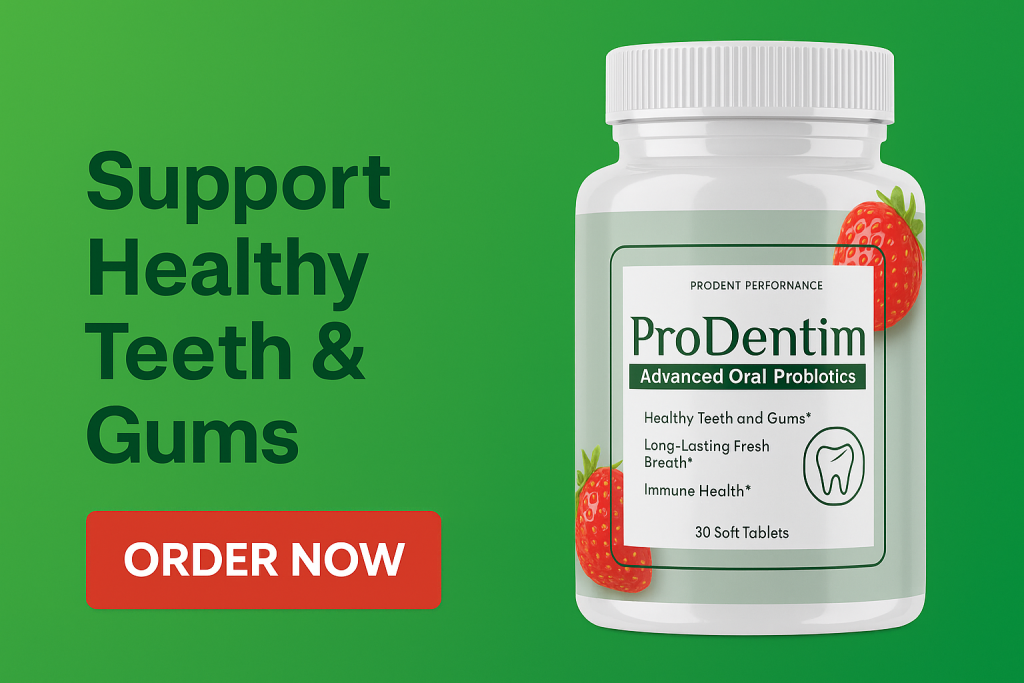ProDentim vs Traditional Mouthwash: Which Is Better for Your Oral Health?
Introduction
Maintaining good oral hygiene is essential for overall health, confidence, and fresh breath. A common part of daily oral care routines involves the use of mouth rinses or mouthwashes, which help reduce bacteria, freshen breath, and prevent dental issues. Traditionally, many people rely on chemical-based mouthwashes containing antiseptic ingredients. Recently, however, probiotic supplements like ProDentim have gained popularity as a natural alternative aimed at supporting oral health from within. This article compares these two approaches—traditional mouthwashes and probiotics—to help you understand their effectiveness, safety, ingredients, and long-term benefits for your oral health.
Understanding How Traditional Mouthwashes Work to Improve Oral Health
Traditional mouthwashes typically contain antiseptic ingredients such as alcohol, chlorhexidine, or cetylpyridinium chloride. These compounds work by killing or inhibiting the growth of bacteria responsible for plaque buildup, gum disease, and bad breath. Many formulations also include fluoride to help prevent cavities and artificial flavors to provide a fresh taste. The primary benefit of these products is their immediate action in reducing oral bacteria and providing a quick sense of freshness.
However, there are potential drawbacks. Some formulations, especially those with high alcohol content, can cause dryness of the mouth, mucosal irritation, or sensitivities in individuals with chemical sensitivities. Overuse of certain antiseptics like chlorhexidine may also lead to staining of teeth or altered taste sensations, making long-term use a concern for some users.
What Is ProDentim and How Do Probiotics Support Oral Health?
Probiotics are beneficial bacteria that, when introduced into the body, help maintain a healthy balance of microbiota. In the context of oral health, probiotics aim to restore and support the natural flora of the mouth, which can be disrupted by poor hygiene, antibiotics, or other factors. ProDentim utilizes specific probiotic strains designed to promote a balanced oral microbiome, reducing harmful bacteria that cause plaque, gingivitis, and bad breath.
Unlike antiseptic mouthwashes that temporarily eliminate bacteria, probiotics work by supporting the growth of beneficial bacteria, fostering a healthier environment in the mouth. This approach emphasizes restoring natural flora rather than just cleaning the surface, potentially leading to more sustainable oral health improvements over time.
Comparing Effectiveness: Do Probiotics Match the Benefits of Traditional Mouthwashes?
Research indicates that probiotics can effectively reduce plaque accumulation, gingivitis, and halitosis by promoting a balanced oral microbiome. While traditional mouthwashes provide quick, short-term relief by killing bacteria, probiotics offer a more sustained benefit by encouraging the growth of helpful bacteria that outcompete harmful strains.
In some situations, traditional antiseptic mouthwashes may be more effective for immediate concerns, such as pre- or post-dental procedures, or when rapid bacterial reduction is necessary. However, for long-term maintenance and overall oral health, probiotics may provide a more holistic approach by supporting the body’s natural defenses and microbiome health.
Safety and Side Effects: Are Probiotics a Gentler Alternative?
Traditional mouthwashes, especially those with alcohol or strong chemicals, can cause side effects like oral dryness, mucosal irritation, or allergic reactions in sensitive individuals. Long-term use of certain antiseptics may also alter the natural balance of bacteria in the mouth, potentially leading to other issues.
Probiotic supplements like ProDentim generally have a favorable safety profile, especially for those with sensitivities or allergies to chemical ingredients. Since they work by supporting beneficial bacteria, they tend to be gentler on oral tissues and may reduce the risk of adverse effects associated with chemical-based products. Nonetheless, it is advisable to consult with a dental professional before making significant changes to your oral hygiene routine, particularly for long-term use.
Ingredient Comparison: Natural Probiotics Versus Chemical Formulations
Traditional mouthwashes often contain a mix of alcohol, synthetics, artificial flavors, preservatives, and other chemicals. While effective at bacterial reduction, these ingredients can sometimes irritate tissues or cause sensitivities.
In contrast, probiotic-based products like ProDentim feature natural ingredients, including specific strains of beneficial bacteria, prebiotics, and other natural compounds aimed at supporting oral health. These ingredients are generally gentler, less likely to cause irritation, and contribute to a healthier oral environment over time.
The choice of ingredients plays a significant role in the safety and overall impact of the product on your oral tissues and general health.
The Long-Term Impact on Oral Microbiome and Overall Oral Health
Regular use of traditional mouthwashes may disrupt the balance of beneficial bacteria in the mouth, potentially leading to a less diverse microbiome and other oral health issues. Over time, this disruption can compromise the natural defenses of the oral ecosystem.
Probiotics, on the other hand, aim to support and enhance the natural microbiome, fostering a balanced environment that can resist pathogenic bacteria. Evidence suggests that consistent probiotic use can lead to sustained improvements in oral health, including reduced plaque, fewer cavities, and healthier gums, by maintaining microbial diversity and resilience.
Which Option Is Better for Specific Oral Health Concerns?
For individuals with sensitive gums, allergies, or chemical sensitivities, probiotic options like ProDentim may be a safer and more comfortable choice. They are also suitable for those seeking a long-term strategy to maintain oral microbiome health.
Traditional mouthwashes might be preferred temporarily in situations requiring immediate bacterial reduction, such as before dental procedures or during active infections. However, for ongoing maintenance and overall oral health, integrating probiotics into your routine can be beneficial.
Final Thoughts: Making an Informed Choice for Your Oral Health
Both traditional mouthwashes and probiotics have their advantages and limitations. While antiseptic rinses provide quick bacterial control, probiotics support the natural balance of your oral microbiome for sustained health. The best approach depends on your individual needs, sensitivities, and long-term goals.
Personalized oral health strategies should be discussed with your dental professional, who can help determine the most suitable products and routines for you. Remember, consistent oral hygiene practices and regular dental check-ups are essential components of maintaining healthy teeth and gums.
Call to Action
Evaluate your oral health needs carefully and consider incorporating probiotics like ProDentim into your daily routine. Combining this with proper brushing, flossing, and professional dental care can lead to healthier, happier smiles over time.




